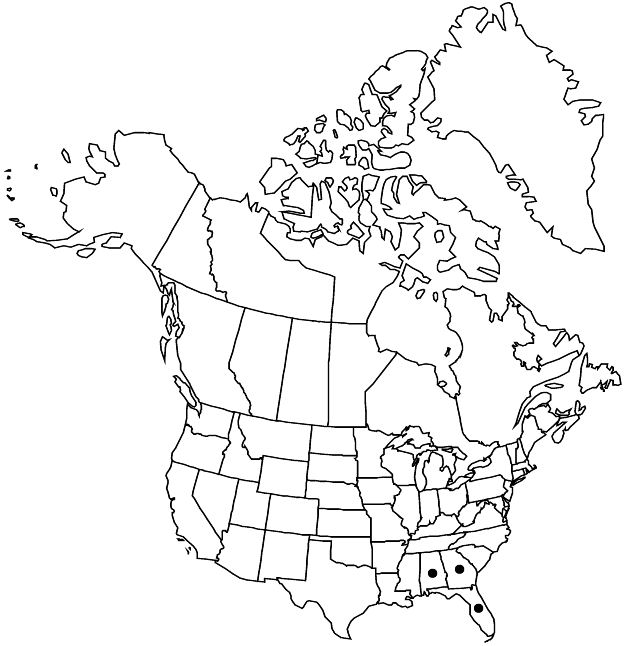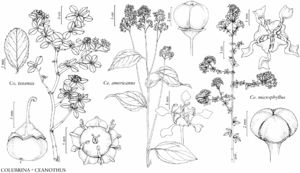Ceanothus microphyllus
Fl. Bor.-Amer. 1: 154. 1803.
Shrubs, deciduous, 0.4–0.7 m. Stems erect to ascending, not rooting at nodes; branchlets reddish green or yellow-green, not thorn-tipped, round in cross-section, flexible, usually puberulent, sometimes strigillose. Leaves often fascicled; petiole 0.5–1 mm; blade flat, elliptic, ovate-elliptic, or narrowly obovate, 2–10 × 1–6 mm, base cuneate, margins entire or weakly denticulate distally, not wavy, teeth 5–9, apex rounded or obtuse, abaxial surface pale green, puberulent on veins, adaxial surface green, glabrous; pinnately veined or 3-veined from base (venation obscure). Inflorescences axillary or terminal, umbellike or ± racemelike, 1–3 cm. Flowers: sepals, petals, and nectary white. Capsules 3–4.5 mm wide, lobed; valves smooth, not crested.
Phenology: Flowering Mar–Jun.
Habitat: Sandy flats, shrublands, pine-oak woodlands.
Elevation: 0–200 m.
Distribution

Ala., Fla., Ga.
Discussion
Short-statured plants of Ceanothus microphyllus with ovate-elliptic leaves, evident venation, and racemelike inflorescences have been called C. serpyllifolius (M. Van Rensselaer and H. McMinn 1942; W. H. Duncan and J. T. Kartesz 1981). Ceanothus serpyllifolius is treated here as part of C. microphyllus, because of continuous variation in leaf size, shape, and inflorescence architecture. Ceanothus serpyllifolius also has been applied to small-leaved, short-statured plants of C. americanus, some of which may be hybrids between that species and C. microphyllus (N. C. Coile 1988).
Selected References
None.
Lower Taxa
"thin" is not a number.
